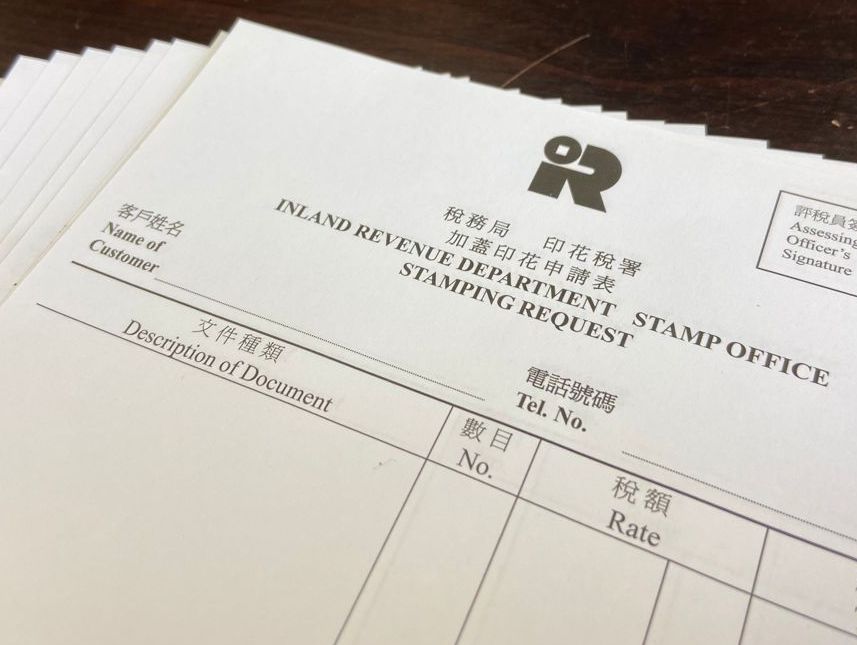
FAR-REACHING IMPLICATIONS OF COURT OF APPEAL’S RULING ON VOLUNTARY ARRANGEMENT BETWEEN BENEFICIARIES ON DISTRIBUTION OF ESTATE
August 2021
Background
The Court of Appeal handed down its reason for judgment in Wong Suet Foon Shirly v Collector of Stamp Revenue CACV 66/2020 on 29 July 2021. In this case, as Madam Ming Sum Yee (“Deceased”) died intestate, her five surviving children were entitled to share her estate. The Appellant was one of her five surviving children. On 4 June 2012, letters of administration in respect of the estate of the Deceased were granted to the Appellant. On 3 May 2014, the five surviving children entered into a Deed of Family Arrangement (“Deed”) pursuant to which three of the surviving children renounced their entitlements to a landed property (“Property”) owned by the Deceased. Accordingly, the Appellant and Alice (being the vesting beneficiaries) would become the joint tenants of the Property.
In accordance with the Deed, on 16 October 2014, the Appellant as the administratrix of the Deceased executed a Deed of Assent (“Assent”) for the purpose of vesting and assigning the Property unto Alice and herself.
The Deed and the Assent were presented for adjudication to the Collector of the Stamp Revenue (“Collector”). The Collector took the view that the Deed and the Assent operated as a voluntary disposition inter vivos and were chargeable with stamp duty under section 27(1) of the Stamp Duty Ordinance (Cap 117 of the Laws of Hong Kong) (“Ordinance”). The Collector further determined that higher scale 1 rate of ad valorem stamp duty was applicable. The vesting of the Property by the Appellant in her capacity as administratrix of the Deceased unto Alice and herself (in her own capacity) was not considered as a transfer of residential property between close relatives.
The Appellant appealed to the District Court. The Collector changed his stance and conceded that stamp duty was chargeable only on the Assent (but not the Deed). The appeal was unsuccessful and the Appellant appealed to the Court of Appeal.
Judgment
The Court of Appeal held that the Deed operates as a disclaimer but not a conveyance or transfer. No beneficial interests in the Property could be vested before the Assent. Upon the death of the Deceased, the five surviving children became the expectant beneficiaries of her intestate estate. None of them could assert any legal or equitable interest in any of the assets forming part of the unadministered estate. It follows that there was nothing which the surviving children could convey or transfer by way of the Deed. Accordingly, no ad valorem stamp duty is chargeable on the Deed.
The Court of Appeal further held that the Assent is not chargeable with ad valorem stamp duty under section 27(1) of the Ordinance. It was not disputed by the Collector that an assent, where a personal representative distributes a deceased’s estate in accordance with section 4 of the Intestates’ Estates Ordinance (Cap 73 of the Laws of Hong Kong) (“IEO”), being a testamentary disposition, does not amount to a disposition inter vivos and does not attract stamp duty under section 27(1) of the Ordinance.
The Collector argued that the Assent consisted of a disposition whereby some expectant beneficiaries disclaimed their entitlements to the Property and the other expectant beneficiaries took up the disclaimed entitlement. Such disposition was a deviation from the original testamentary disposition under the IEO. Since the IEO is intended to give effect to the presumed intention of the intestate as to who should be entitled to share in his estate after his death, a disposition deviating from it should be regarded as a disposition inter vivos.
The Court of Appeal rejected the Collector’s submission. It is well established law that a beneficiary is free to refuse or renounce the gift to him, for the law cannot force a man to take an estate against his will. If an expectant beneficiary disclaims his interest, the administrator should simply leave him out of the consideration in the administration of the estate as if he were non-existent or had never been named as a beneficiary. The administrator should then distribute the estate to the remaining beneficiaries in accordance with the relevant law of intestacy.
The whole interests in the Property remained with the Deceased’s estate throughout. It was a transfer from the Appellant, as the administratrix representing the Deceased, to herself and Alice, as the remaining expectant beneficiaries who did not disclaim the estate. There was no conveyance or transfer of interest of the Property to the other expectant beneficiaries who had disclaimed the estate. The present situation is no different from where an expectant beneficiary has died before the estate is administered and distribution could be made to him. The administrator would simply leave him out of consideration and distribute the estate to the remaining beneficiaries.
The deeming provision in section 27(4) of the Ordinance is not applicable to the Assent. The Court of Appeal took the view that the legislative intent of section 27(4) is to prevent evasion of stamp duty by the use of inadequate consideration or other circumstances. It is to deem a conveyance or transfer with valuable (but inadequate) consideration, which as a matter of law is not voluntary, to be voluntary. It is not intended to deem the Assent which is not inter vivos to be inter vivos.
Implications
The Court of Appeal ruling that an assent is not chargeable with ad valorem stamp duty even if the expectant beneficiaries of the estate deviate from the law of intestacy and agree among themselves to redistribute (by way of disclaimer) their entitlements to a property may have a far-reaching implication on the practice of the Collector when it comes to voluntary arrangement among beneficiaries in the distribution of estate. Paragraph 35 of Stamp Office Interpretation and Practice Notes No. 8 (Revised) issued in November 2018 provides that:
“A transfer of an immovable property under an estate of a deceased person to the beneficiaries of the estate pursuant to a will or in accordance with the law of intestacy or by the right of survivorship is not chargeable with stamp duty. However, if the beneficiaries of the estate deviate from the will or the law of intestacy and agree among themselves to redistribute their entitlements to the property, the excess distribution over the original entitlement will be subject to AVD as deed of gift at Scale 1 rates or Scale 2 rates, as the case may be.” (emphasis added)
The Court of Appeal ruling is inconsistent with the long-standing practice of the Inland Revenue Department regarding chargeability of stamp duty on voluntary arrangement among beneficiaries in the distribution of estate. This may lead to claims for repayment of overpaid stamp duty which application could, unfortunately, be subject to a two years’ time limit.
Update on 9 September 2021: When it comes to distribution of residential properties under estates, the Stamp Office now charges ad valorem stamp duty at lower rates (Scale 2) and exempts buyer’s stamp duty if the deceased and the transferee(s) as well as the transferees among themselves (if applicable) are closely related persons.


